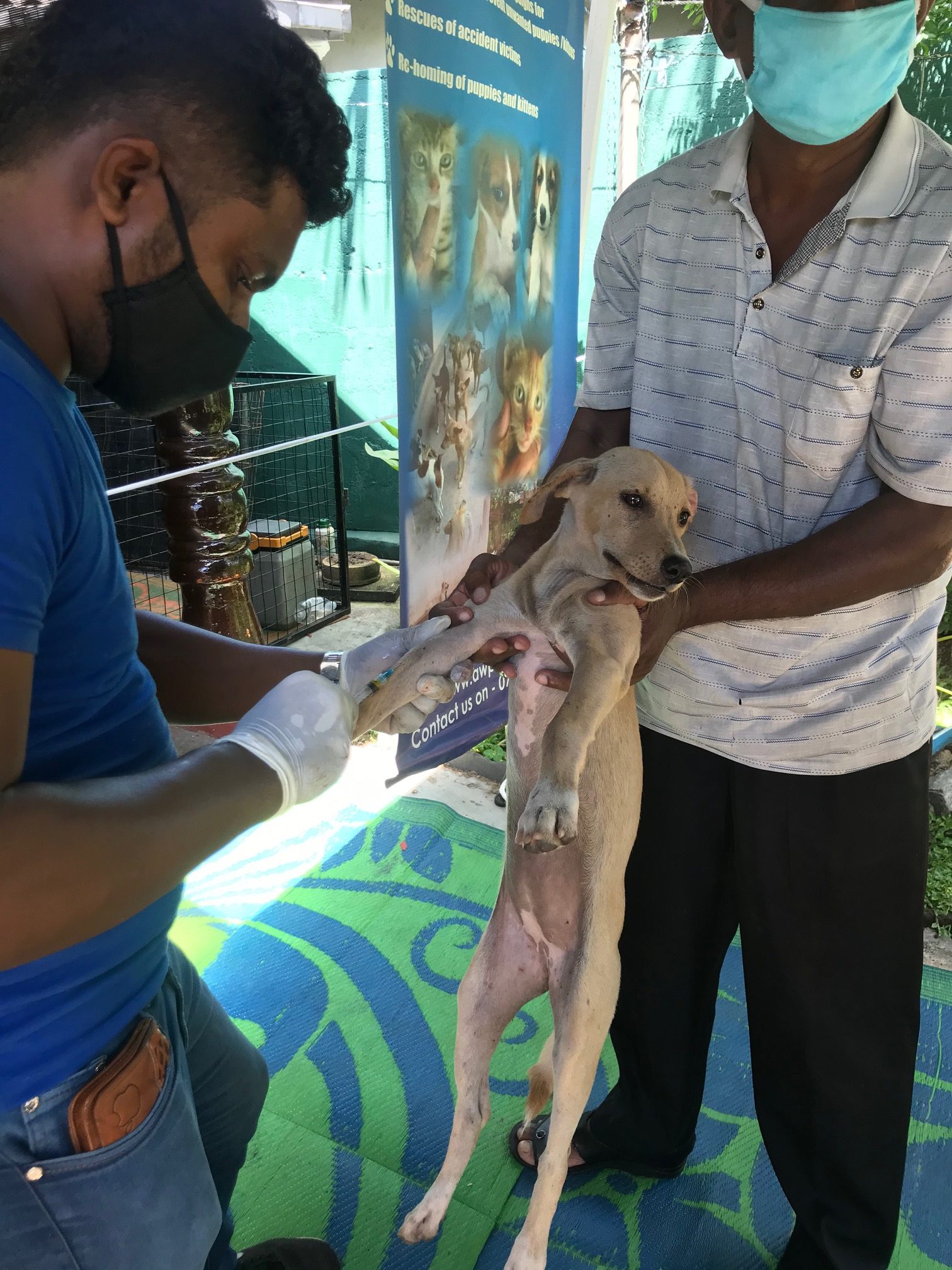The Animal’s Welfare & Protection Association (AWPA) runs two no-kill shelters in Colombo, which today house over 400 animals. The running of these shelters takes an enormous effort and significant funding in order to cover food, medication, and care of our beloved shelter residents. The shelters themselves require ongoing maintenance in order to provide a safe space for our furry friends.
Community outreach is also a core component of AWPA strategy in order to reduce the number of stray dogs and educate people on safe and humane ways to care for these animals through sterilization. The AWPA spends a great amount of their time, resources, and manpower to conduct regular sterilization campaigns across the country.
Campaigns in both urban and rural areas are held whenever funds are available, for community animals and those owned by low-income households. A veterinarian is hired for the day to come to a particular location and sterilize all animals brought in. For this to happen, a local coordinator has to inform the general public in the area of this campaign, and persuade people to bring in their owned dogs and cats, as well as those on the street who they may look after. These volunteers are the true heroes of successful campaigns. Some veterinarians bring animal catchers, who visit areas where strays gather, and bring them in for the programme. These animals are generally cared for the rest of the day (until they have recovered from the anesthesia) by the local coordinator, and then returned to their localities.
If you are able to support one of these campaigns by funding or coordinating locally, please email Ms. Iromi Salgado on iromi54@gmail.com, or call 077 656 5181. The average cost per animal is Rs.2,000 and an average of 75 animals are done per campaign.
The AWPA also runs a referral programme, where you may take a community dog or cat to your local AWPA approved vet for sterilization at the cost of the AWPA. Please contact Ms. Salgado via the email or phone (details above) if you know of an animal that needs sterilization, but need support in paying the bill.
Through these outreach schemes, about 1,500 animals were sterilized in 2020 alone. From June 2020, Mrs Nelum Perera, an AWPA member and well-wisher, has very kindly given us her premises to conduct our monthly stetilization programme for cats and we are most grateful to her for her generosity. All our campaigns have been conducted under COVID health guidelines.
As we all know, if a female dog litters an average of four pups every six months, she will have 5,000 descendants over the next five years. A pup or kitten can be sterilized from the age of six months. Female cats can be sterilized as soon as the kittens are weaned (four to six weeks). Males – both cats and dogs – need to be sterilized, too, as they pose a risk of mating with unsterilized females.
Sterilizing animals have a host of other advantages for our cuddly critters. It is beneficial in preventing certain medical conditions, such as ovarian and testicular cancer, anal tumors, and various forms of prostate disease in males, and is known to reduce aggression in males – making communities and families safer. To dog and cat owners who do not need litter – we appeal to you to please get your animal, whether male or female, sterilized. While it would be wonderful to breed a particular animal with good qualities.


Leave a Reply